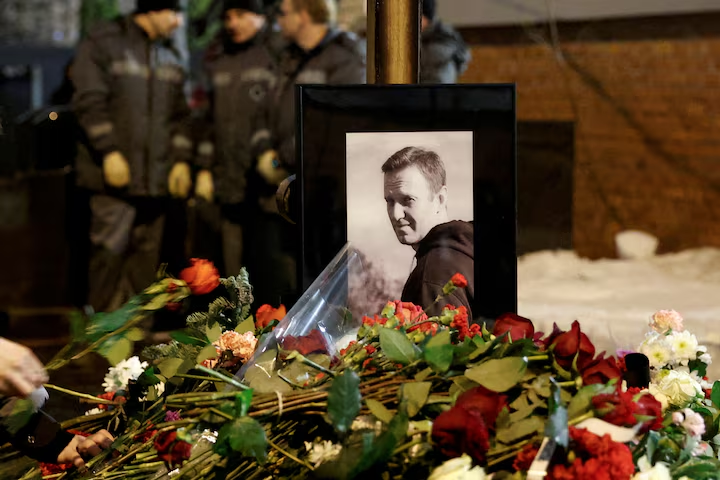The belated admission by US intelligence agencies that Russian President Vladimir Putin did not order the killing of Alexei Navalny raises questions about the US motives in initially making the claim and now withdrawing it.
The Wall Street Journal revealed that US intelligence agencies concluded in their investigation into the death of Navalny, a Kremlin critic, that Vladimir Putin likely did not issue an order to kill him.
The journal added that this widely accepted conclusion within the US intelligence community has been shared by the including the Central Intelligence Agency, the Office of the Director of National Intelligence, and the State Department’s intelligence unit. The report stated that the American findings are based on a range of information, including some classified data, and analysis of public facts, such as the timing of Navalny’s death and its impact on Putin’s reelection in the Russian presidential elections.
While the Wall Street Journal noted that these reports do not absolve Putin of responsibility for Navalny’s death, the widespread coverage of this news by various international news agencies signifies a belated acknowledgment of a reality that Russia had repeatedly raised.
Who was Navalny?
Alexei Navalny gained prominence as the most prominent critic of Putin when he fainted during a flight from Siberia to Moscow in 2020, and later it was announced he had been poisoned with the nerve agent Novichok. He accused Russia of intending to harm him with this poison, an accusation denied by the Kremlin. Navalny, reportedly transferred to Germany for treatment, was detained upon his return to Russia on charges of “violating parole” at the airport. It was late February that news emerged of his death in a prison in northern Russia. Prison officials stated that Navalny felt unwell after a walk and almost immediately lost consciousness. They announced that medical staff immediately arrived on the scene, but resuscitation efforts were unsuccessful, and ambulance doctors confirmed his death.
Navalny’s death occurred under circumstances where confirmed negotiations for his exchange with some Russian prisoners in American or European prisons were considered likely. It was on this basis that Vladimir Putin termed Navalny’s death “tragic” and stated he was ready to hand him over to the West in a prisoner exchange, provided Navalny never returned to Russia. Allies of Navalny confirmed that such negotiations were underway.
Navalny’s death, pretext for sanctions against Russia
However, shortly after the news of the death of the 47-year-old Putin critic, the US pointed the finger at Russian President via Navlny’s wife Yulia Navalnaya’s show. Just days after Navalny’s death, US President Joe Biden met with his wife and daughter in California. Biden stated that “this is a direct consequence of the actions of the President of Russia” and announced that “significant new sanctions” would be imposed on the Russian government. The claim was echoed by Kamala Harris, Biden’s vice president, Antony Blinken, US Secretary of State, and John Kirby, White House National Security Council spokesperson, and formed the basis of fresh sanctions against Moscow.
Ursula von der Leyen, head of the European Commission, and Josep Borrell, the EU’s foreign policy chief, also stated that they would not hesitate to hold Moscow accountable. Britain also imposed new sanctions against Russia citing Navalny’s death, and other European leaders joined this campaign against Putin. Consequently, after the sensational report by the Wall Street Journal, the question arose as to why the US and Europe accused Moscow before conducting investigations and now, through unofficial channels, admit their claims were baseless. Are the US and Europe now lifting sanctions imposed based on unfounded claims?
Some analysts believe that to answer this question, attention should be paid to the precise timing of Navalny’s death; namely, a few months before the Russian presidential elections. Although the focus on Navalny’s death could not prevent Putin’s victory in the elections, according to analysts, the high-profile display by the US and Europe could remove obstacles to transferring financial aid to Ukraine. Financial and military aid that feed off the economic infrastructure of the US and Europe and, more accurately, taxpayers of these countries, impose difficulties on the people of these countries. “Putinphobia” and abuse of Navalny’s corpse has made billions of dollars for Volodymyr Zelensky, the President of Ukraine, to oil the wheels of war with Russia, the latest of which is a $60 billion US aid package to Kiev, which was ratified by US Congress and the Senate last week.
